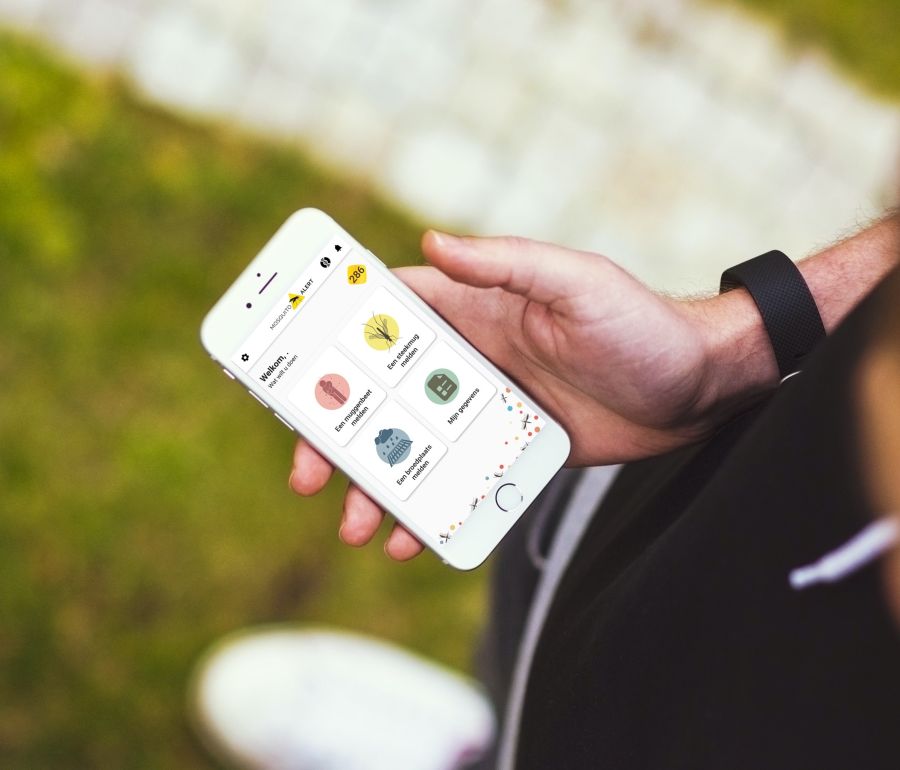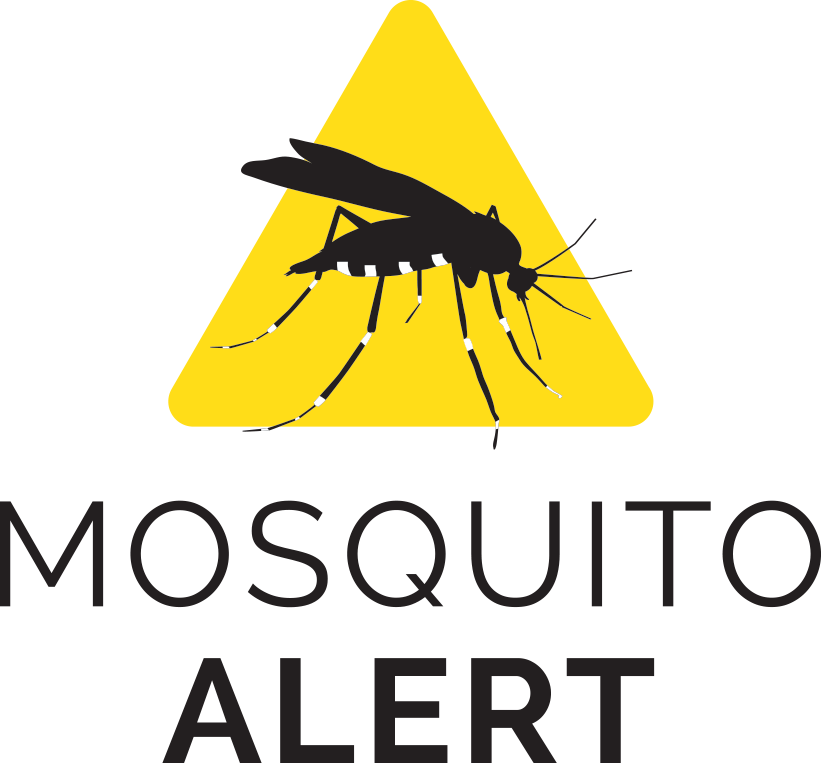Press release: Troubled by mosquitoes? Knock them down and take a picture!

Click here to read the press release in Dutch.
- Submit mosquito photos via the Mosquito Alert App and help prevent nuisance and the spread of any future mosquito-borne infectious diseases
- Anyone can download the app for free and submit photos and reports of mosquitoes, mosquito bites and mosquito breeding sites – You will receive points for each photo submitted!
Rotterdam, 12 August 2021 – Starting this summer, anyone in Europe can submit photos and reports of mosquitoes, mosquito bites and mosquito breeding sites via the Mosquito Alert app. The goal is to accurately map the current distribution of native mosquitoes with the help of citizens, and, thus, predict in which areas in the Netherlands and the rest of Europe exotic mosquitoes may become established in the future. This is important because certain mosquito species can transmit diseases. The more photos submitted, the better mosquito populations can be mapped and targeted preventative measures can be taken. The data collected with the app is used for One Health research of the One Health PACT (in the Netherlands) and VEO (Europe).
In the Netherlands – as in the rest of Europe – the risk of outbreaks of infectious diseases transmitted by mosquitoes is increasing. In 2020, for example, eight cases of West Nile fever, spread by the common house mosquito, were reported in the Netherlands for the first time. “Our ambition is to detect outbreaks of infectious diseases spread by mosquitoes more quickly. The help of citizens is very important for this. In cooperation with citizens, this app allows our researchers to map and investigate mosquito populations already in the early stages, so that their impact can be limited,” said Professor Marion Koopmans, coordinator of the research consortia One Health PACT and VEO.
The Mosquito Alert app was developed by four Spanish organizations, which monitor and control invasive mosquitoes in Spain. The initial focus was on the Asian tiger mosquito. Via the latest version of the app, information about the yellow fever mosquito (Aedes aegypti), the Asian forest mosquito (Aedes japonicus), Aedes koreicus and the common house mosquito (Culex pipiens) can now be collected.
In Spain, thanks to the 18,300 photos already submitted by citizens through the Mosquito Alert app, the distribution of the Asian tiger mosquito (Aedes albopictus) has been accurately mapped. This mosquito is native to Southeast Asia and can transmit diseases such as dengue, chikungunya and Zika. Mapping the location of this mosquito in Spain enables, among other things, targeted control. In the Netherlands, this mosquito has not yet been able to establish itself due to the active control of exotic mosquitoes by the Dutch Food and Consumer Product Safety Authority (NVWA).
The photos sent in via the Mosquito Alert App are classified by more than 63 European experts in the field of mosquitoes (entomologists). The researchers are assisted in this process by an algorithm that has now been trained with more than 7,000 photos and will eventually be able to assess all submitted photos quickly and efficiently.
The Mosquito Alert App can be downloaded for free from the App Store and Google Play.

Editorial information
Download here images of the Mosquito Alert app.
About One Health PACT
The Netherlands is particularly vulnerable to outbreaks of viral diseases transmitted by mosquitoes due to its water-dominated landscape, dense humans and livestock population and the expected establishment of new mosquito species such as Aedes albopictus. Separated and reaction-based research efforts into the numerous factors interplaying in the emergence of viral outbreaks, however results in disconnected research findings and critical factors unstudied. The One Health PACT is a research collaboration of experts in a wide variety of fields relevant for infectious disease outbreaks, ranging from ecological and climate modelling to medical entomology, virology and public health. More information: www.onehealthpact.org
Partners One Health PACT
The One Health PACT project takes place within a multidisciplinary research field. The aim of our project is to extensively look into all aspects of preparedness of potential arboviral introduction and spread. To reach this goal, many partners from different fields are involved. Among those partners are the universities, where our PhD students and Post-doc are located. In addition to that, the NWO financed this project together with several co-financiers that all provide their expertise in different research fields. Lastly, there are national and international collaborating partners involved in the project by sharing data and knowledge with our researchers.
More information?
Maaike van Zuilen
e-mail: maaike@philogirl.nl
or call: 06 456 32 117
Or contact – Maarten Hoek, programme manager One Health PACT:
e-mail: m.r.hoek@erasmusmc.nl
or call: +31 (0)6 826 18 957
Professor Marion Koopmans
e-mail: viroscience@erasmusmc.nl
or call: +31 (0)10 704 40 67